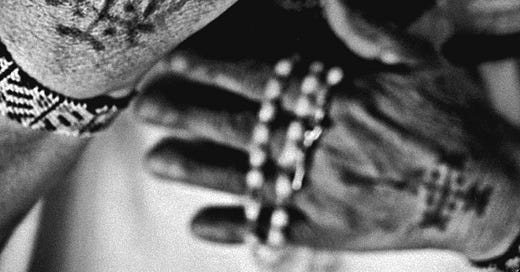Forgiveness comes with no reward.
It comes with a nauseating lack of satisfaction. So incredibly silent, personal, and non-revolutionary. No one is going to applaud me, and I’m not getting a sticker for being a good samaritan, but that’s exactly why it must be done.
It’s without reward, but a responsibility nonetheless.
I’ve lost count of how often I’ve fallen into the trap of confusing nurture for some objective reality. A fundamental miscalculation that may be irritating, but still a hallmark of our humanness in which there’s no shame. We write a script for a movie only we will attend the premiere of. We assign roles to characters that have no idea they’re on the roster, and in turn, we punish them for not knowing their lines. At the end of the day, grievances aren’t shared. We all have them, but they’re ours to keep. Our personal reminders as to why we chose to act in this movie in the first place.
The impermanence of everything is alarming to tackle head on, yet I can’t help but bask in its comfort when I realize how much of a blessing that is. How beautiful it really is that all comes to an end. All movies lead to the credits. All tapes wind out. The only hallmark of existence to which we bear no responsibility is the ending, and if all ends, why can’t my grievances too?
I built a cage from my grievances, then a home from that cage. For so long, I sought refuge in a cold damp purgatory of my own creation and pretended like I didn’t have the key to the way out. The iron bars were rusted with imprints of my calloused palms, nothing more than an elaborate performance of escape tailored to a nonexistent audience. All the while, the keys sat squarely in my back pocket. They’d been there for so long, I genuinely forgot I had them. On account of my spite, I’d outsourced the responsibility of emotional well-being to everyone else but myself.
Mid november, thursday afternoon.
The weather is warming, but I’m still not ready to forgive you.
I just know why I must.
I have to because I must leave. I really must leave this time, but my God, the world beyond my script is so vast and untethered. I don’t know my lines, and there’s no one to ask when I’m expected on set. Is my travel compensated? Lunch covered? I think I’ll just come in guns blazing and hope we’re not filming a tragedy. What am I meant to make the audience feel? What do I feel? I just know who the director is, that’s about it.
Sometimes I think we’re not so different. Just as I do anything to get by with it all, so do you. How selfish of me to not forgive you for that. We dance till the sun pierces the horizon once more, and work till it bids us farewell again. We spend a tenner on relief, packaged into pills and powder, leaves and stems. Inhaling the soft embrace of an hour-long euphoria, and sighing out the pain as we watch the timer tick down.
A sixty-minute tranquilizer.
Then it’s just you in a scriptless movie.
We gasp as freezing cold water snakes down our bare backs before a day of ping pong between little screen and big screen. Try to bleed out of the cloud and it’ll be your own dragging you back in. Inspiration fatigue. Ten minutes on the phone and we’re already rewriting the script.
It’s about time I walked off the set.
My goal was never to feel good apparently. It was always to feel more. And to feel more, I need to forgive you.





Your writing, like always, is brutal in its honesty, lyrical in its structure, and deeply aware of its own contradictions, which makes it all the more powerful.
The metaphor of life as a self-scripted film is both devastating and liberating. We cast people in roles they never auditioned for, and then punish them for fumbling lines they never agreed to read. That realisation alone should be enough to dismantle the grievance-built cage — but, of course, it isn’t. Forgiveness, as you so precisely state, is not some glorious, self-satisfying act of sainthood. It’s silent. Anti-climactic. Almost nauseating in its lack of reward. And yet, necessary.
The passage about carrying the keys to your own escape, yet pretending not to have them, might be one of the most poignant descriptions of self-imposed suffering I’ve read in a long time. We clutch our pain with a kind of stubborn loyalty, unwilling to admit that its release is entirely in our control. But maybe the most striking line of all: “My goal was never to feel good apparently. It was always to feel more.” That’s the ethos of every true artist, thinker, and seeker — someone who’d rather live in the discomfort of reality than numb themselves with the cheap relief of delusion.
If there’s one thing I’d add, it’s this: forgiveness isn’t just the key to leaving the set — it’s the key to realising there was never a set to begin with. No script. No premiere. Just people, stumbling through their own unrehearsed existence, hoping they don’t forget their lines in a film they’re also trying to direct…
This 3 minute read singlehandedly broke through my writers block. Thank you for sharing.